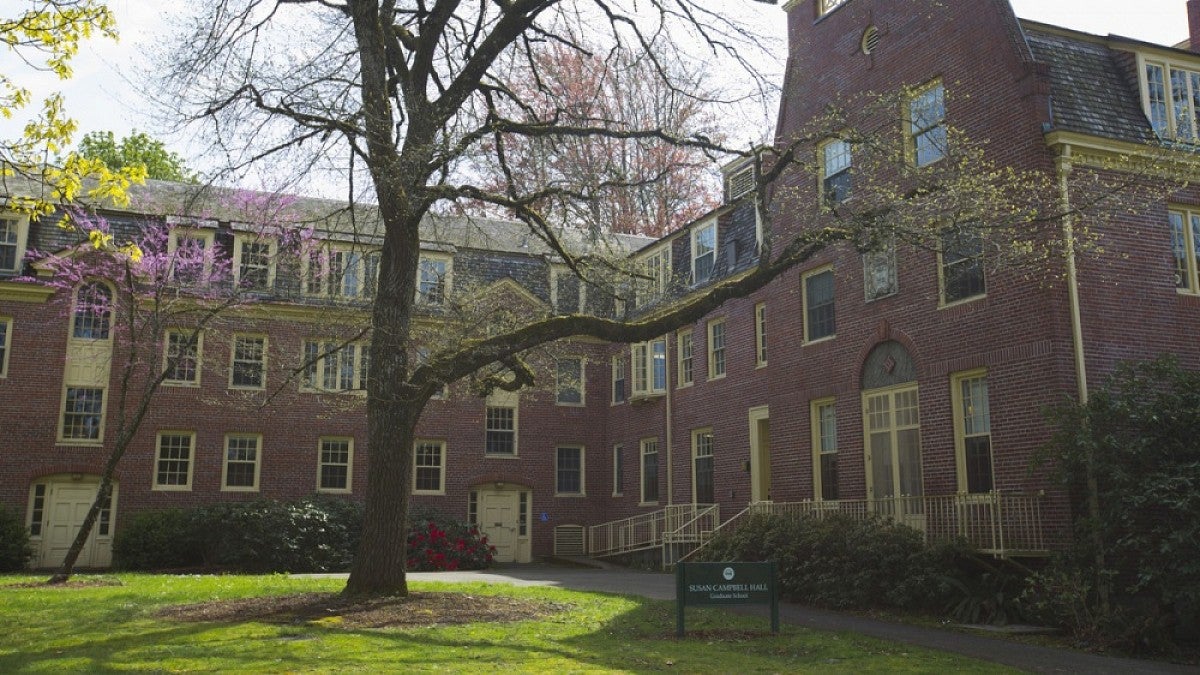The University of Oregon’s Graduate School has awarded more than 90 students a variety of fellowships and research awards for the 2020-21 academic year.
The awards range from $500 to $25,000 per year and, in some cases, include tuition support. They are designed to assist doctoral and master’s students with their graduate education. See the complete list of awards on the Graduate School website.
Depending on the award, students were competitively evaluated based on academic success, application quality and faculty nomination.
“These students are the cream of the crop,” said Andy Karduna, associate dean of the Graduate School. “These are not awards that we just give away casually. They are highly competitive.”
The Kimble First-Year Teaching Award, named in honor of Professor Emeritus Dan Kimble, was awarded to cultural anthropologist Kiana Nadonza. The award recognizes outstanding teaching by graduate student instructors who have demonstrated a commitment to inclusive, engaged and research-led practices.
It is jointly sponsored by the Office of the Provost, the Graduate School and the Division of Undergraduate Education and Student Success, and is administered by the Teaching Engagement Program.
“This is the most rewarding kind of award I could get,” said Nadonza, a fourth-year doctoral student. “I love my research. But first and foremost, I love being an educator and teaching how anthropology can help people see things bigger than themselves.”
Nadonza knows firsthand how tough it can be for some students to make it through to graduation. She is a first-generation university student and knows what it’s like to face economic adversity. Her life experience motivates her to bring about change to the structure of the education system. In her classroom, she continually experiments with new teaching styles that push to decolonize the discipline of anthropology by reshaping and building curriculums that are equitable. Her award recognizes those efforts.
“I think it’s extremely important that, not only are we confronting anti-Blackness in our community but that we are also making sure to bring in Black and indigenous scholars to talk to us about new ways of conceptualizing anthropology,” she said.
Nadonza co-directs the Association of Anthropology Graduate Students, and serves on the equity committee and the Asian and Pacific Islander Caucus. She also trains and mentors two students in the Department of Anthropology.
Graduate fellowships are awarded to outstanding doctoral students and are determined by a faculty selection committee. Student dissertations can be on any topic. They are judged on the quality of the written proposal and the potential impact of the research both within and beyond the student’s field.
During her sixth year as a doctoral candidate in comparative literature, Martha Ndakalako-Bannikov was awarded a year-long, fully funded UO Dissertation Research Fellowship.
Now positioned as a scholar in African literature and African studies with a focus in global Anglophone literature at the UO, Ndakalako-Bannikov grew up in Namibia during the country’s colonial era.
“After Namibia became independent, one of the questions that always weighed on me was, ‘What happened? What was all that about?’ And I didn't really have the language to talk about it,” Ndakalako-Bannikov said.
Graduate school gave her the tools she needed to answer those questions.
“It gave me a way to think about how colonialism changed Namibian life,” Ndakalako-Bannikov said. “I was curious about a question and I wanted, I needed, to figure out an answer.”
The fellowship has given her the time and focus she needed for her dissertation, as well as an award stipend of $20,000, including a tuition waiver, fee subsidies and health insurance.
“I’m going to turn my dissertation into a book, absolutely,” she said. “She’s a beast; I love her, I hate her. But at the end of the day, I have put too much work into it to not let it become what it is.”
For Jeremy Bard, a fifth-year graduate student in chemistry and biochemistry, being awarded the UO Doctoral Research Fellowship meant a guaranteed, focused and funded year to conclude his doctoral project.
“There were times where I was definitely working 60 or more hours a week,” Bard said, reflecting on his work on novel fluorescent molecules. “Sometimes grad school just depends on that.” .
As a relatively new project, funding had always been the biggest question.
“Without the fellowship, the project would have been probably postponed for the foreseeable future,” Bard said. “So it was, more or less, a make-or-break moment.”
—By Cheyenne Thorpe, University Communications


